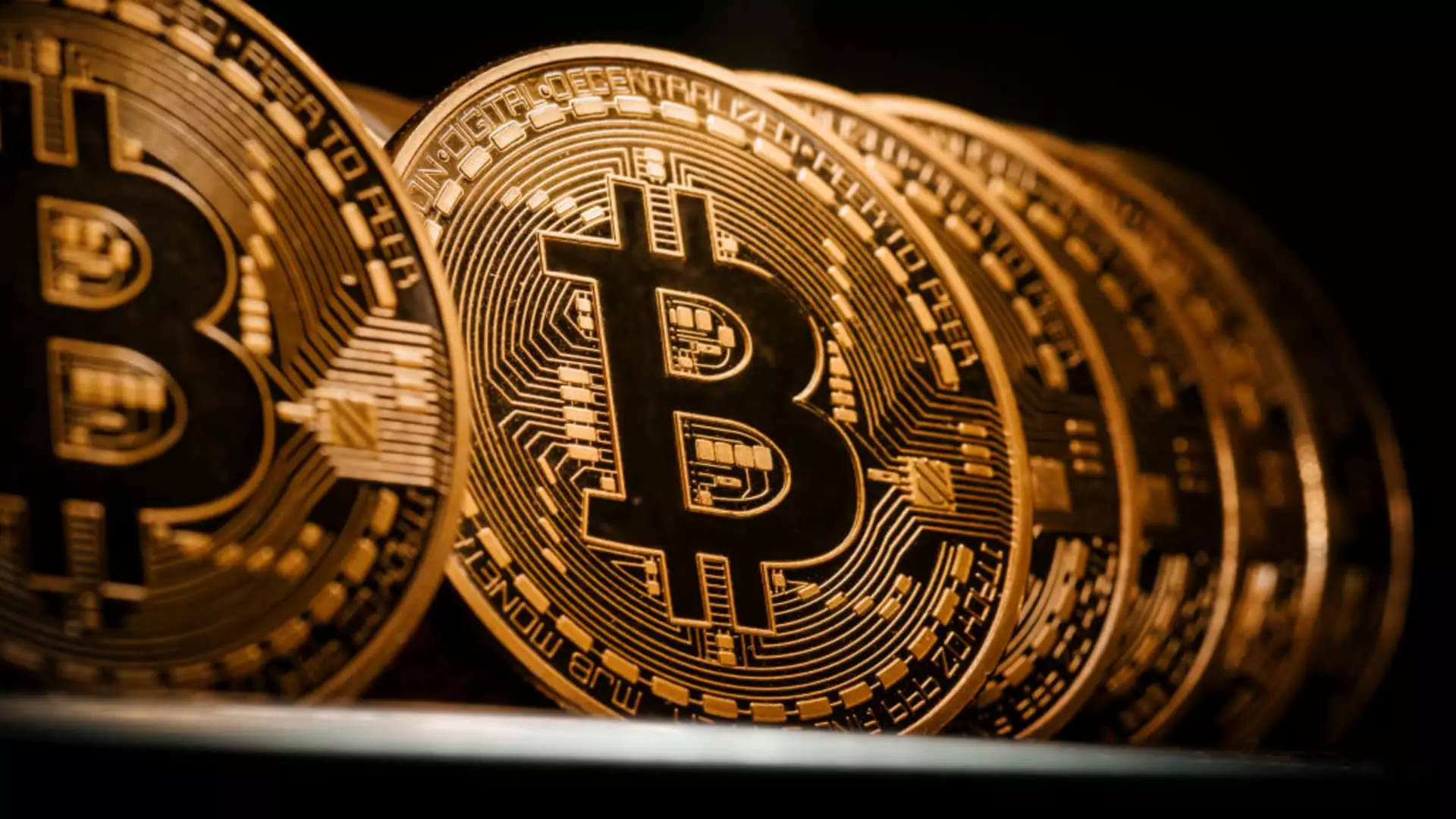In a groundbreaking decision, Acurx Pharmaceuticals has opted to incorporate cryptocurrency into its financial strategy by purchasing up to $1 million in Bitcoin as a treasury reserve asset. This move underscores a growing trend of corporate entities looking beyond traditional assets in a bid to enhance their financial resilience and operational flexibility in uncertain market conditions. CEO David P. Luci’s announcement reflects a keen recognition of Bitcoin’s burgeoning status as a legitimate asset class, one that is increasingly favored in a landscape marked by inflation concerns and economic uncertainty.
The company’s decision came with reported fluctuations in stock price—shares fell over 6% despite an initial surge in premarket trading. This volatility may be attributed to market reactions to Bitcoin’s current highs and the general uncertainty associated with the cryptocurrency environment. However, Luci remains optimistic, stating that Bitcoin’s limited supply and characteristics that render it inflation-resistant serve as solid arguments for its selection as a reserve asset.
Acurx’s strategy notably mirrors that of MicroStrategy, a pioneer in adapting Bitcoin as a treasury reserve asset. When MicroStrategy made headlines in 2020 by acquiring over 21,000 Bitcoins ahead of a massive bull run, many companies took notice. Since then, CEO Michael Saylor has become a vocal advocate for Bitcoin adoption across corporate treasuries, which has cultivated a gradually rising interest in the cryptocurrency among other businesses.
Adding Bitcoin to their treasury reserve is not merely a financial maneuver; it symbolizes a shift in how companies view assets amid changing economic conditions. The substantial rise in MicroStrategy’s stock—over 500% since their initial investment—is indicative of the significant potential returns that can accompany early adoption of such non-traditional assets.
The proliferation of Bitcoin adoption among corporations is changing the investment dynamics of the cryptocurrency market. Analysts have noted that Bitcoin now stands at all-time highs, and there is a broad expectation it may double in value by the close of 2025. This optimism is further bolstered by a potential regulatory easing in the near future, particularly with statements from President-elect Donald Trump hinting at a more favorable environment for cryptocurrencies.
As more corporations explore Bitcoin, the ecosystem expands, paving the way for smaller entities, like Semler Scientific, to join this financial innovation. Recent conversations, including Saylor’s upcoming pitch to Microsoft’s board to adopt a similar treasury strategy, signal that Bitcoin’s integration into corporate finance may become the norm rather than an exception.
The conversation around Bitcoin’s use is also beginning to resonate within government circles. Recent proposals from figures like Senator Cynthia Lummis advocating for a national strategic Bitcoin reserve highlight the growing recognition of Bitcoin’s significance as an asset. As nations look for means to stabilize and diversify their financial assets, the call for a national Bitcoin stockpile, notably echoed by President-elect Trump, could lead to unprecedented changes in how cryptocurrencies are perceived and utilized at both the corporate and national levels.
Acurx Pharmaceuticals’ recent decision to acquire Bitcoin as a treasury reserve reflects a strategic financial evolution amidst a rapidly transforming landscape. With the backing of industry giants and increasing governmental interest, Bitcoin is set to remain a focal point of financial strategies in the foreseeable future.

